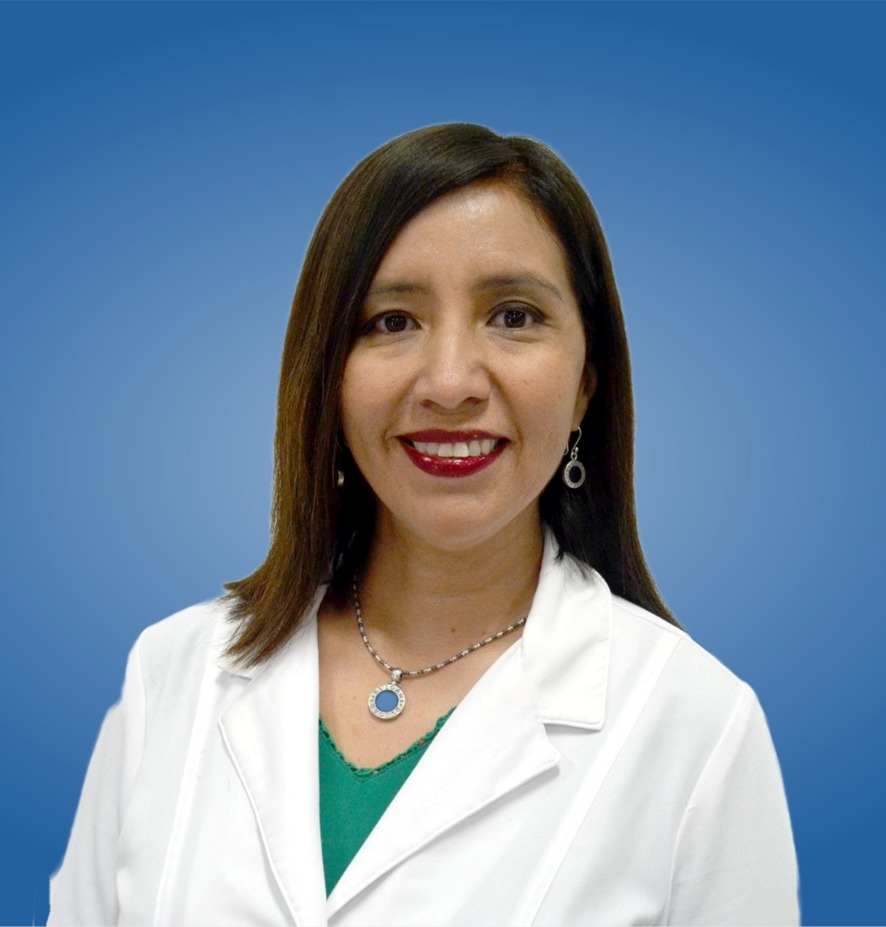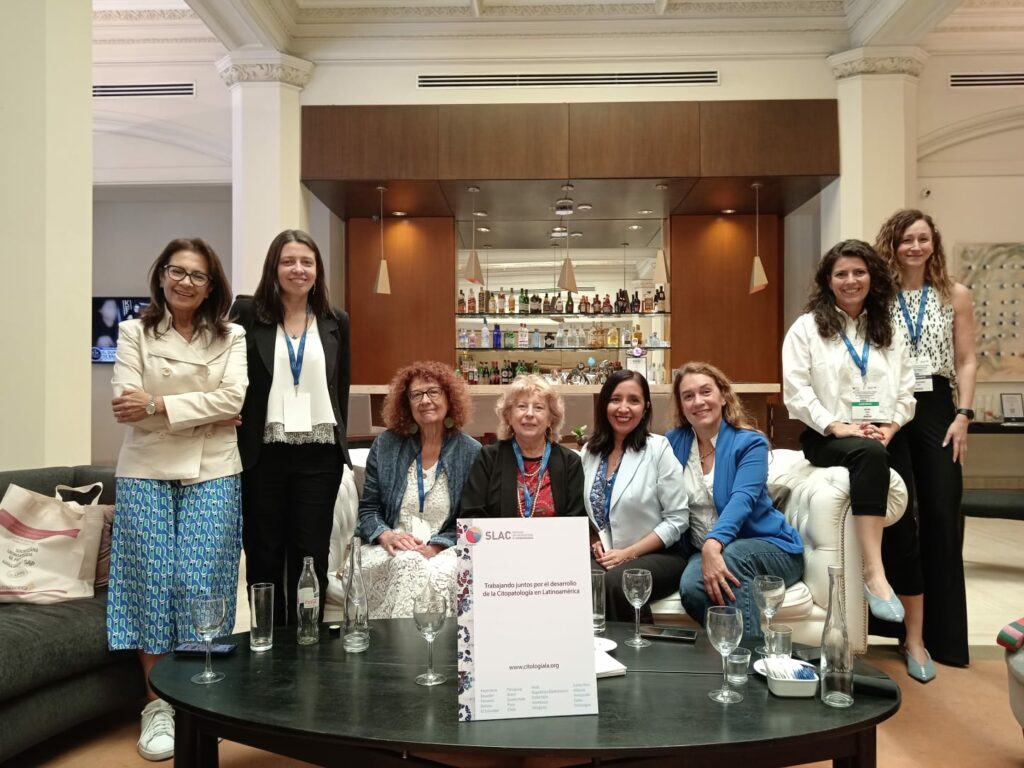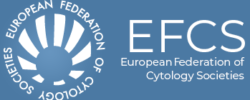Interview with Dr. Milagros Abad – SLAC’s president.
Nominated as SLAC since April 2017 and giving continuity to the pre-existing society of exfoliative cytology (Vienna, 1961), it is composed by 20 affiliated countries and seeks to promote the knowledge, dissemination and application of Cytopathology and the use of international and standardized reporting systems across Latin America. SLAC also counts with an official theoretical and practical exam for both, cytotechnologists and cytopathologists and every 3 years organizes a congress whose host country rotates.
This interview highlights Dr. Milagros Abad’s strategy on cytopathology education, with a vision grounded in accessibility and equity, promoting access to continuous formation, despite major economic and technological limitations in some Latin American countries.
Her tenure, focusing efforts and prioritizing global partnerships worldwide with other scientific societies in the cytology field, allowed the consolidation of major synergy projects, developing joint educational modules with a multicenter participation, in the format of co-host conferences. These collaborations elevate Latin America’s contributions on the global stage and foster a united cytology community committed to excellence. These alliances are led by the International Academy of Cytology (IAC), the ASC (American Association of Cytopathology) and the Spanish Society of Cytopathology (SEC)
The goal is to share and combine ideas, resources, knowledge and efforts to enhance the impact of the actions, while being inclusive and aligned with the dynamic nature of cytopathology, reducing disparities in access to high-quality training by promoting standardized curricula, multilingual resources, and the use of virtual platforms to reach professionals in even the most remote areas.
Virtual education has allowed SLAC to transcend geographical and economic barriers, fostering a culture of continuous learning through webinars, regional workshops, and worldwide. These digital tools ensure that education is not only accessible but also up-to-date with global standards.
Participation has grown significantly, especially among young cytopathologists and technologists who are eager for mentorship and global engagement. Scientific societies are essential pillars of advancement. They foster research, set practice standards, and provide a forum for multidisciplinary collaboration. Globally, societies like SLAC, ASC, IAC and SEC are instrumental in harmonizing diagnostic criteria, promoting quality control, and advocating for the role of cytopathology.
These results would not be possible without the teamwork and support of the entire steering SLAC committee, to whom she is deeply grateful.
Dr. Milagros Abad’s leadership reflects a deep commitment to equity, innovation, and international collaboration. Under her guidance, the Latin American Society of Cytology is not only advancing education but redefining the role of cytopathology in global health.



